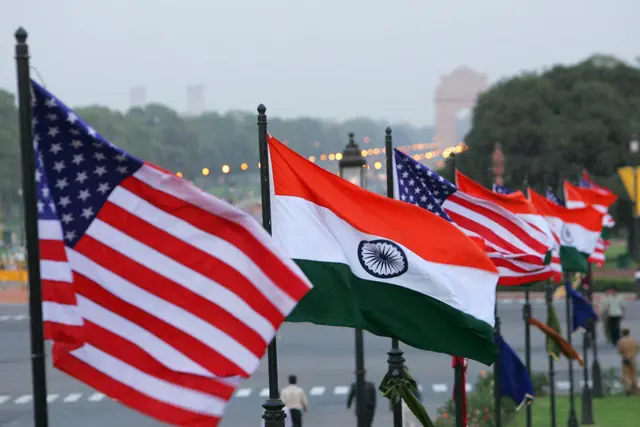Editor's Note:
The writer, Mr. I. Hussain Janjua is a senior media professional and analyst having experience of research & broadcast journalism in different organisations. He is a non-resident fellow of Chengdu Institute of World Affairs (CIWA). (Email: [email protected]; twitter: @ihussainjanjua)
India and the US have signed a strategic military agreement on sharing sensitive satellite data --- vital for accurately hitting missiles, drones and other targets.
The Basic Exchange and Cooperation Agreement on Geospatial Cooperation, or BECA, is among the few deals that the US signs only with close partners. It allows India access to a range of sensitive geospatial and aeronautical data that is crucial for military point of view.
Indian defence sources believe the agreement will pave way for the supply of advanced navigational aids and avionics in aircraft to India.
The timing of the agreement signing is quite significant as India is locked in one of its most hostile standoffs with China along their disputed border in the Himalayan region.
The agreement has generated increased concerns about the future of the region with regard to peace and stability.
Experts say the strengthening of India-US ties is aimed at countering China's influence in the region.
Pakistan is also worried that acquisition of the latest hardware and technologies and provision of data could jeopardize already fragile security situation --- India's belligerence needs no introduction.
Since months US-China relations have witnessed downturn with President Donald Trump's repeated criticism of Beijing's handling of the coronavirus pandemic and imposition of a new security law in Hong Kong.
This defence deal is another step forward towards deepening India-US military ties. While its significance can be gauged from the fact that two of America's most senior Cabinet ministers chose to travel in person to meet their counterparts during times of Covid-19, and a week before the US presidential vote.
In fact, China's rapid growth and development irks US, therefore, it is trying to engage Beijing to serve her interests in the region, significant from different perspectives.
The US wants to change this and has become one of the fastest-growing defence suppliers for India in recent years --- such plans are reflected in the statements of both countries' leaders.
The deal is key, given the current geopolitical scenario. The US seems to have sensed an opportunity in the India-China border standoff and wants to further raise its role in the region.
It can also be viewed as a signal to China that Washington considers Delhi a close military ally.
On the other hand, India needs to be more focused on de-escalating the situation at the border with China as a peaceful resolution is in its best interest, therefore, it must continue to hold military-level talks with Beijing to avoid any sort of conflict.
The joint venture to enhance India's geospatial cooperation and improve the accuracy of its missile systems in no way would China's role in the "Indo-Pacific region." It would be wiser for the top Indian leadership to take rational steps to reverse the engines of self-deception, stop fuelling the fires of mutual distrust, and refrain from bringing uncertainty to a region.
Whatever the nature of disagreements, the reality is that China is actively cooperating with its Asian partners to ensure security in the "Indo-Pacific" and South China Sea.
The US must realize that China and its global rise is a reality and rethink how to deal with China and instead of negativity positive approach would be a profitable option.
(ASIA PACIFIC DAILY)
 简体中文
简体中文

